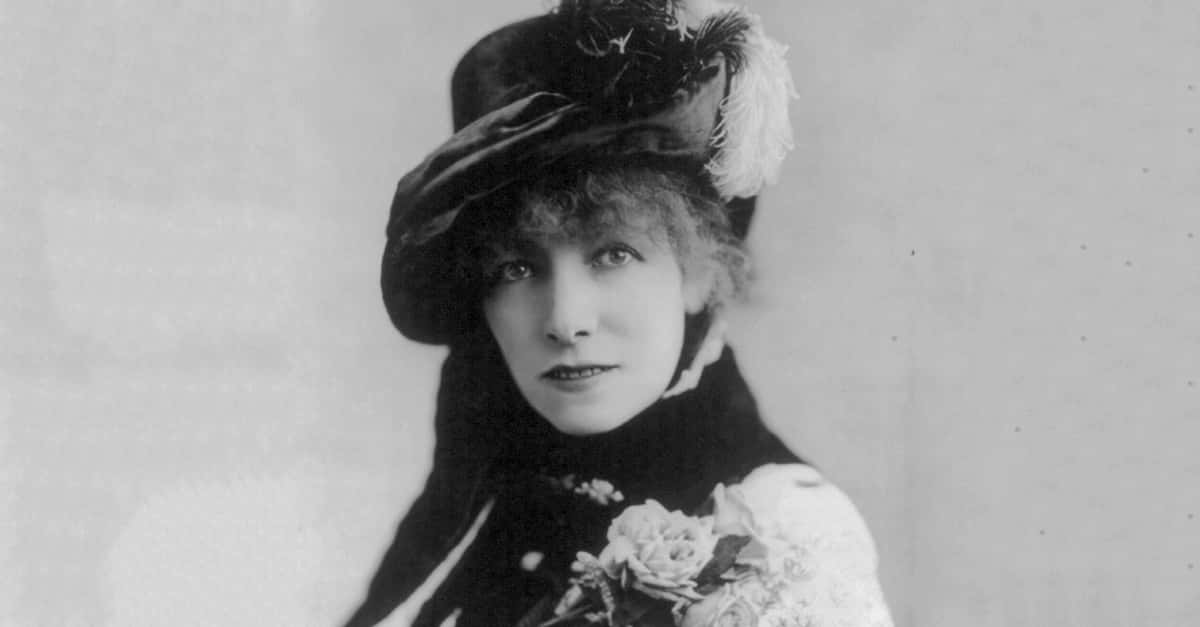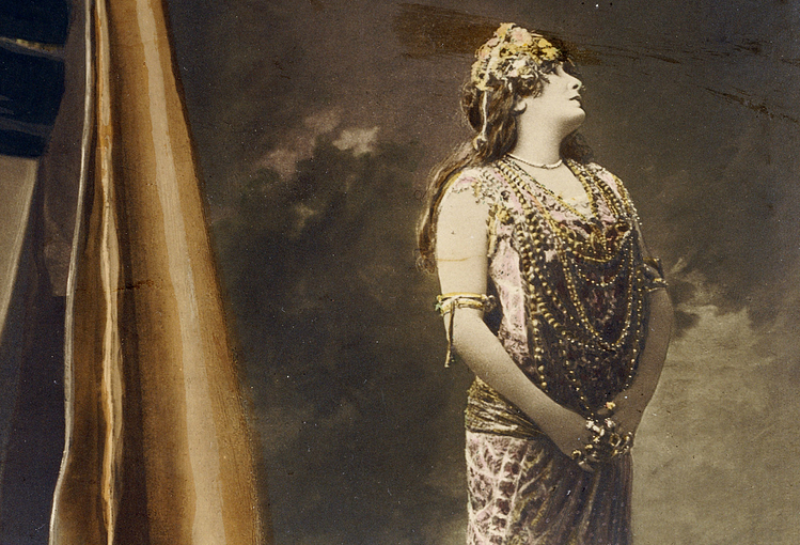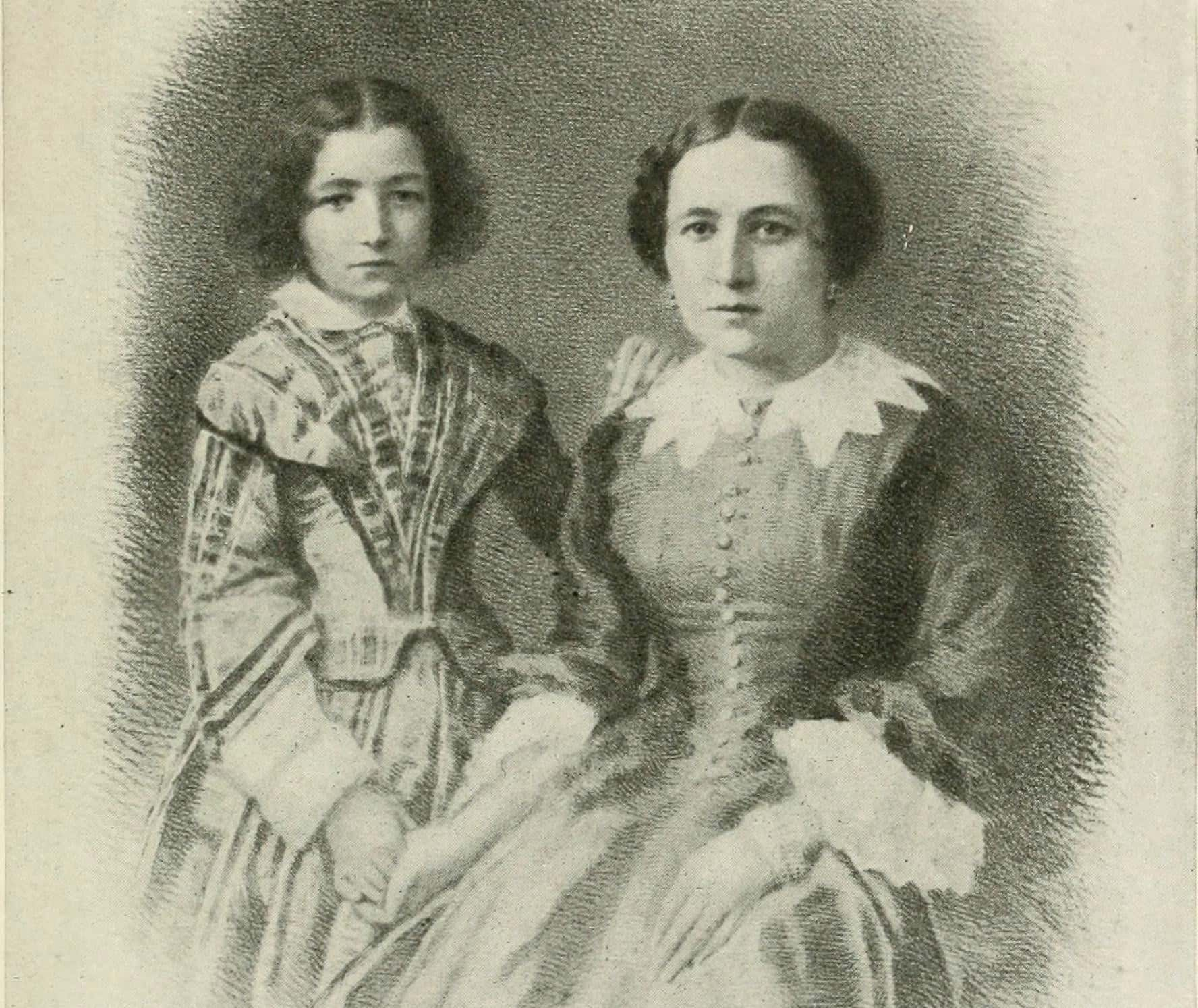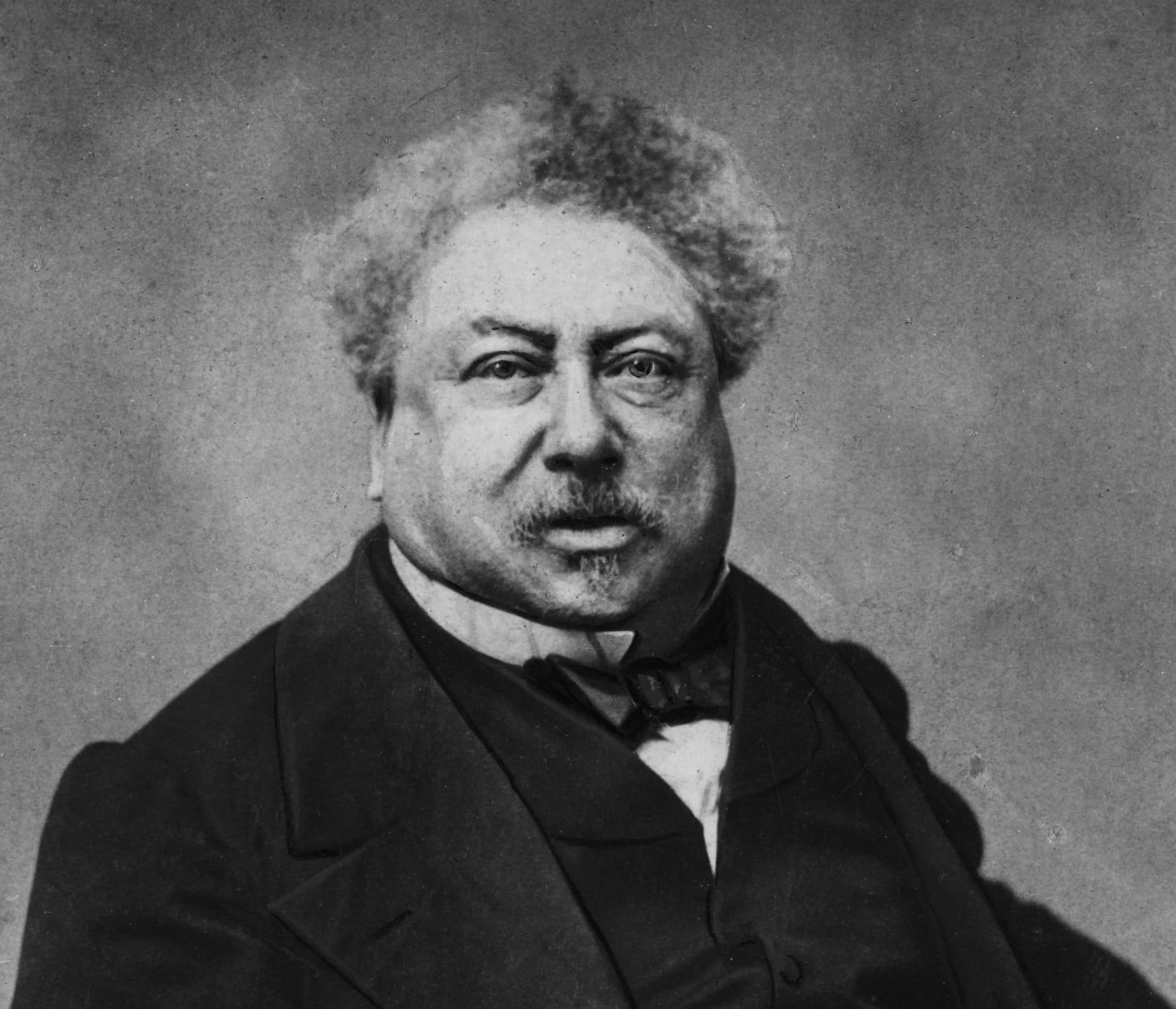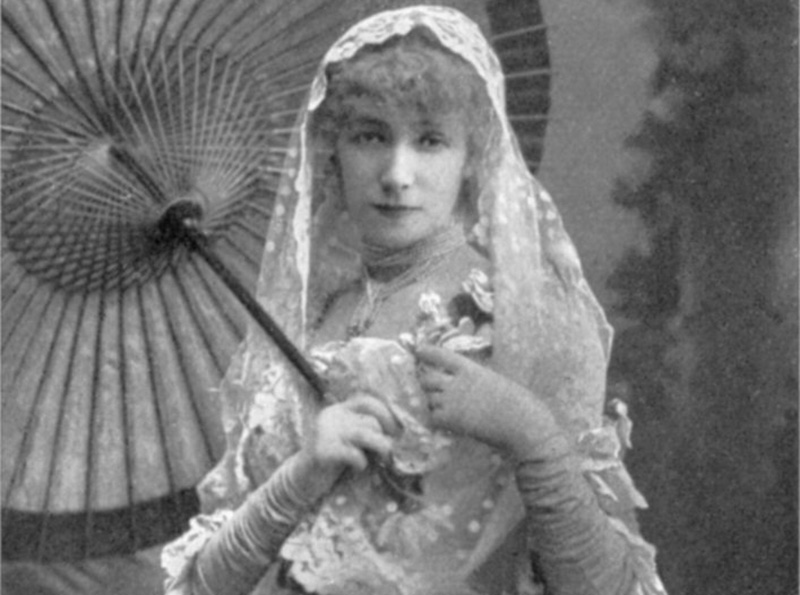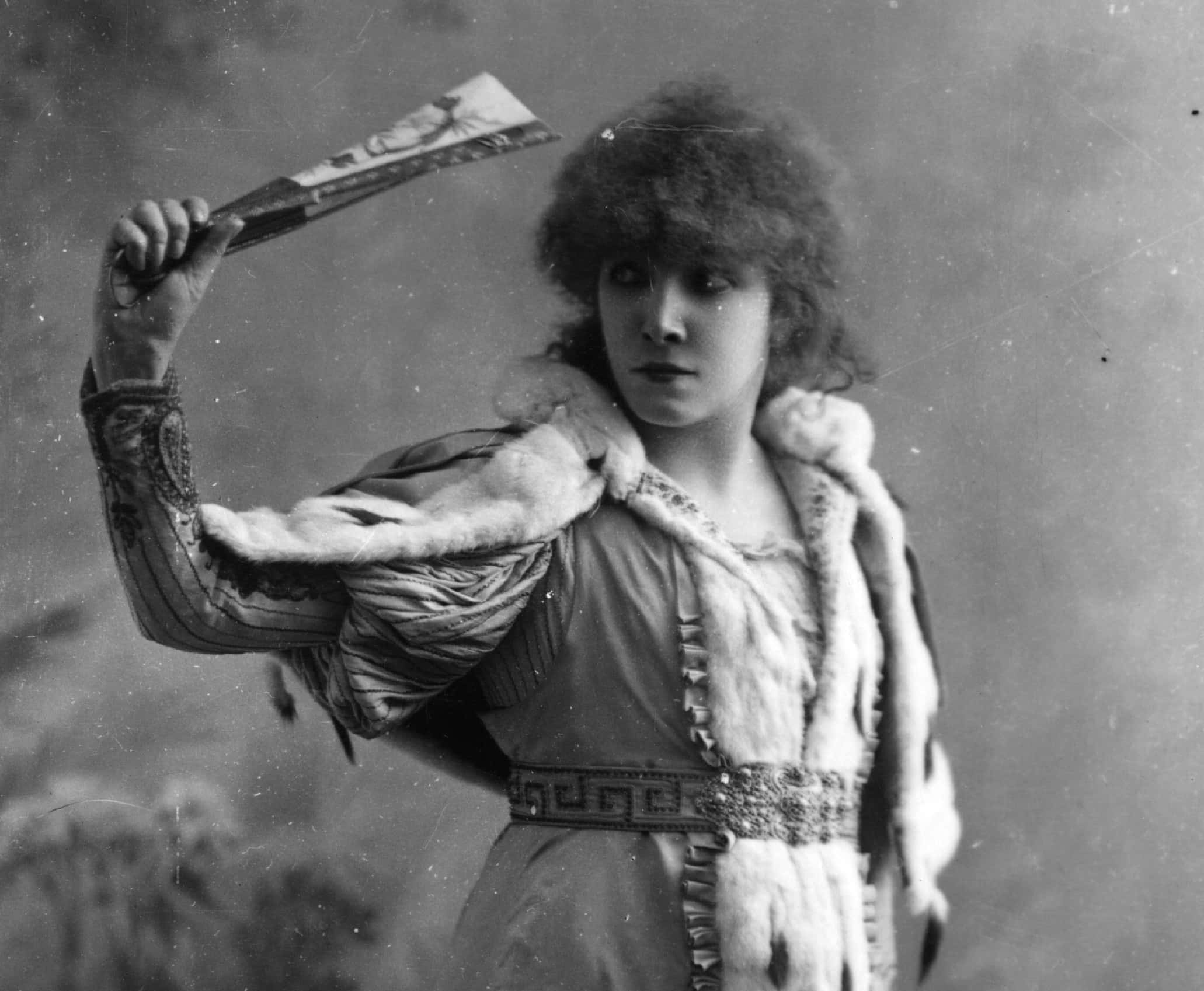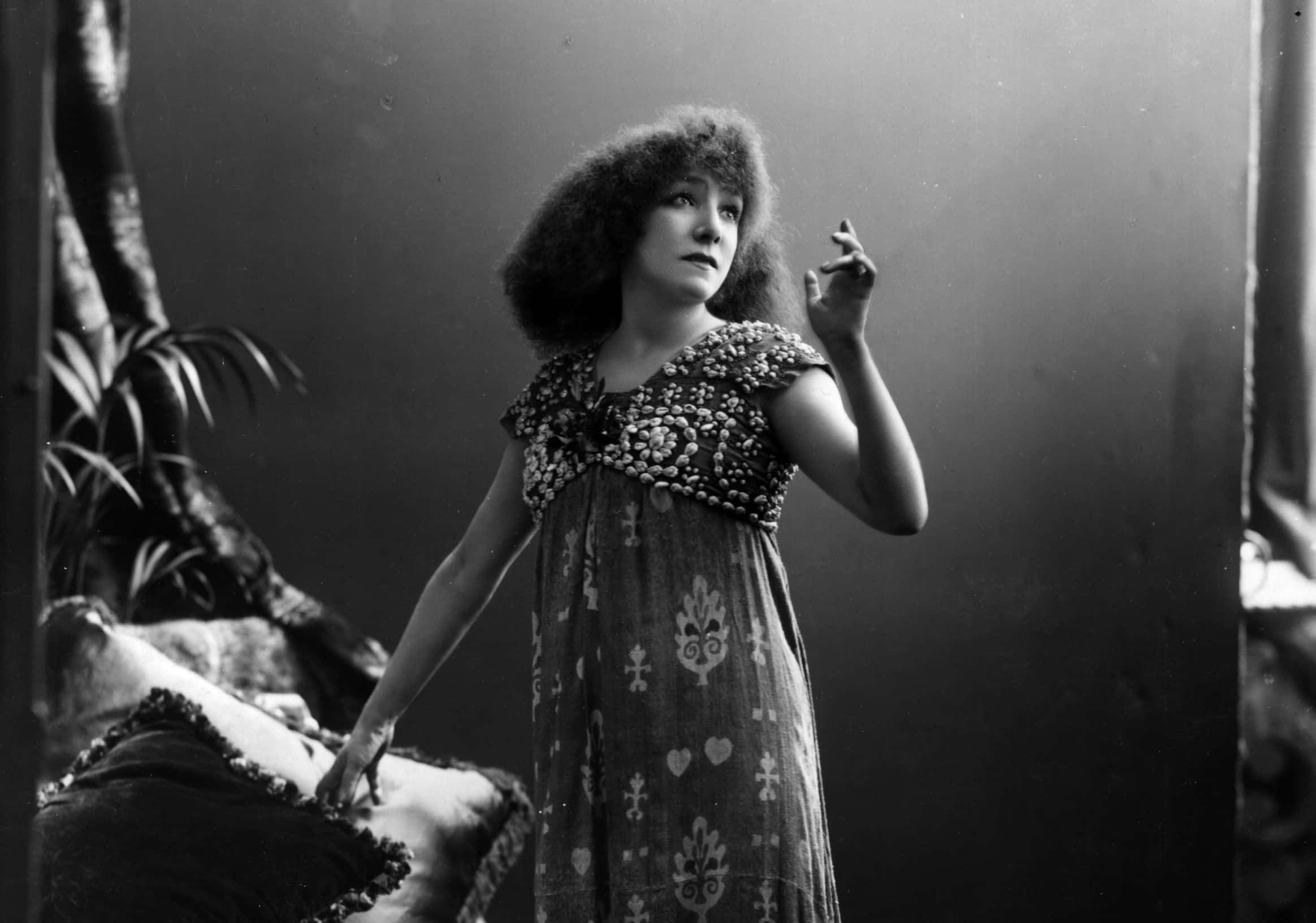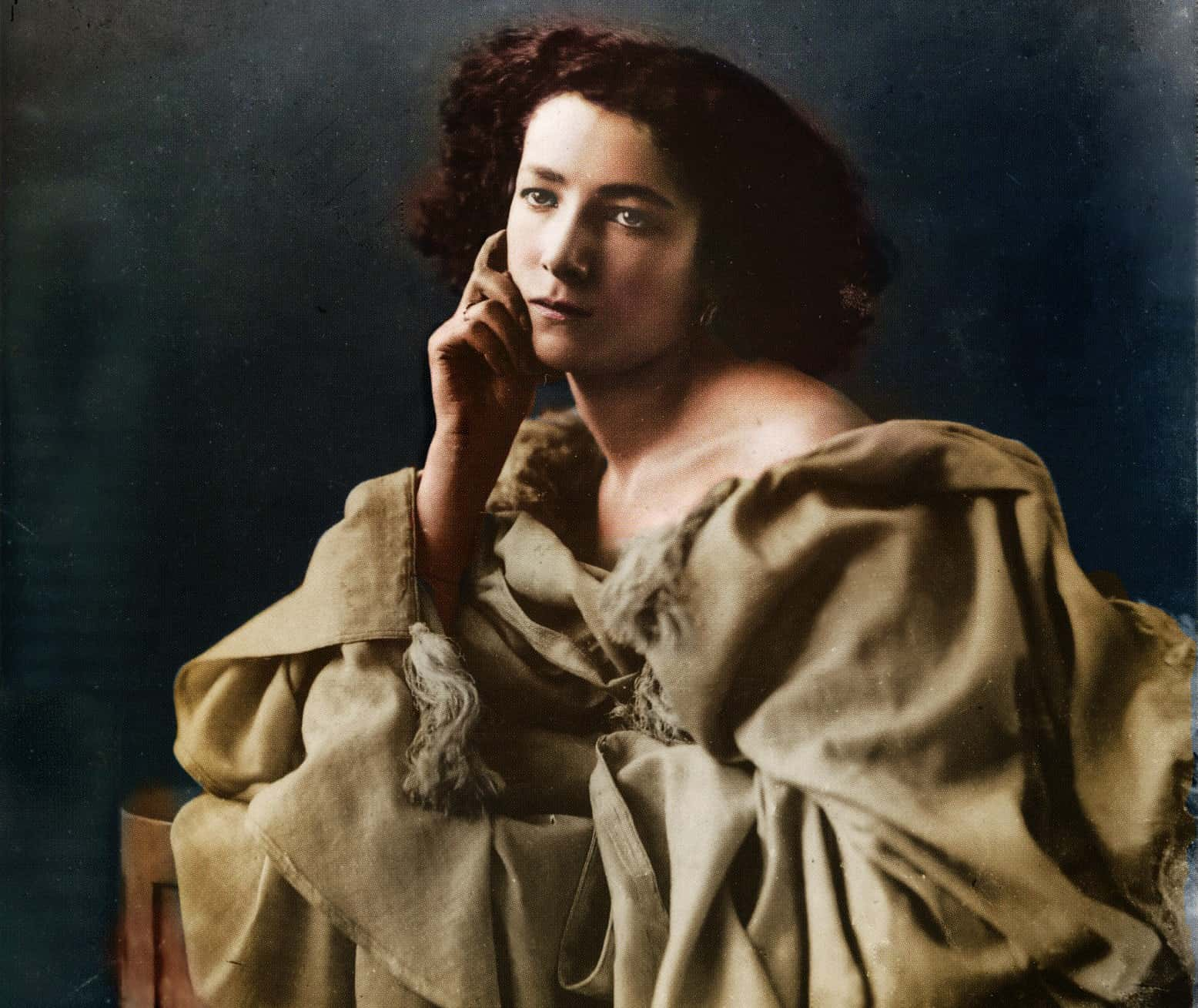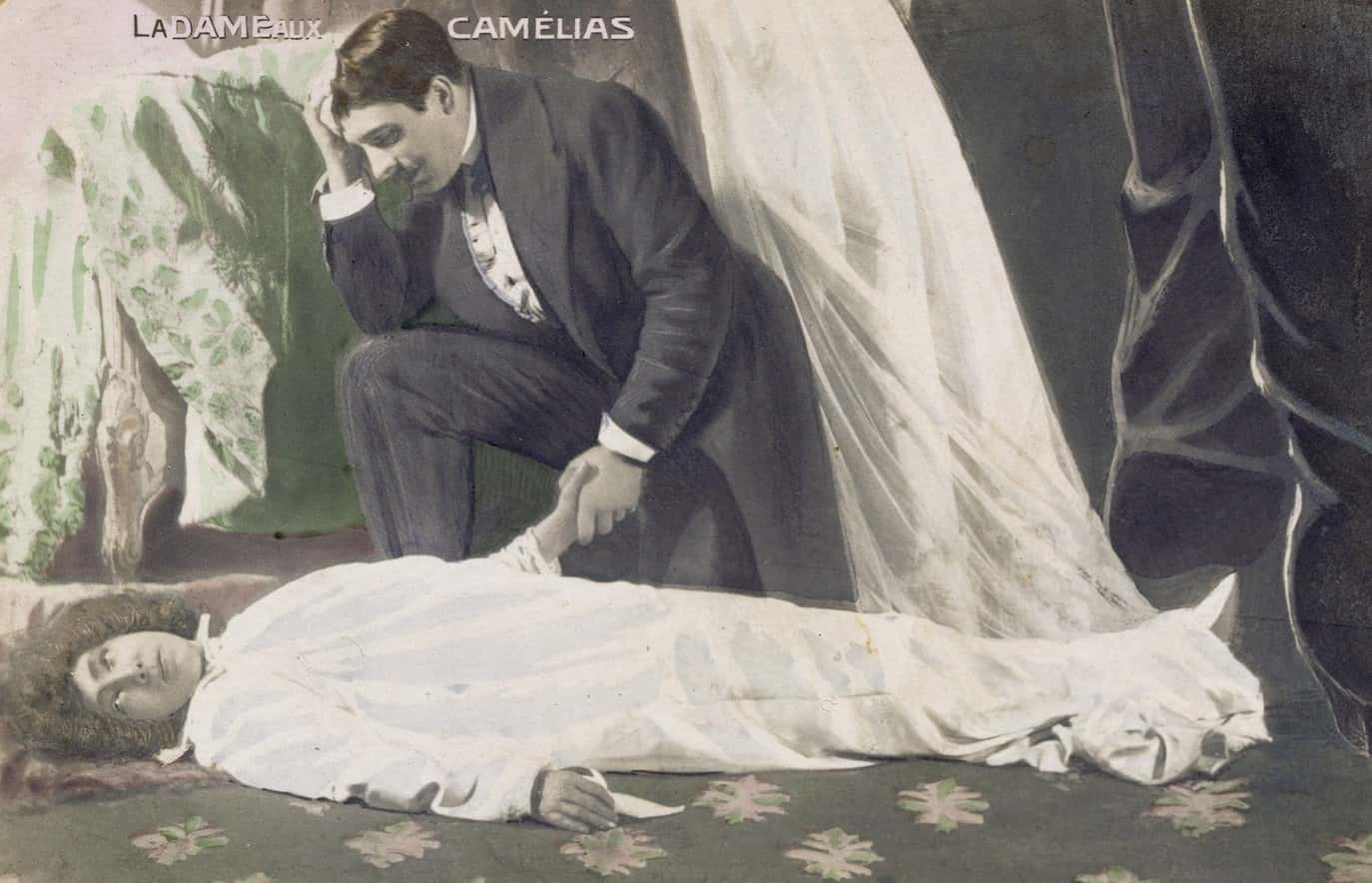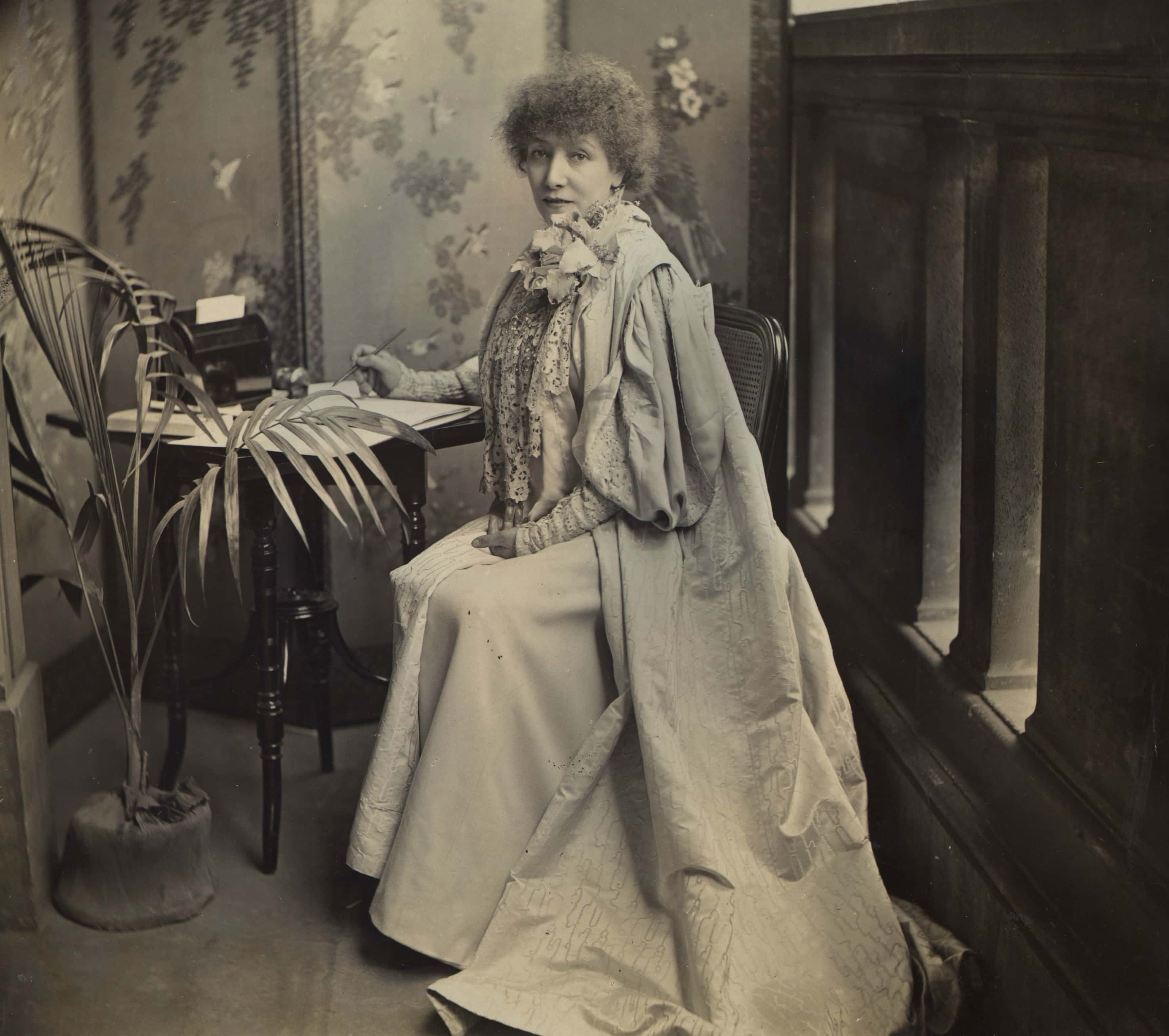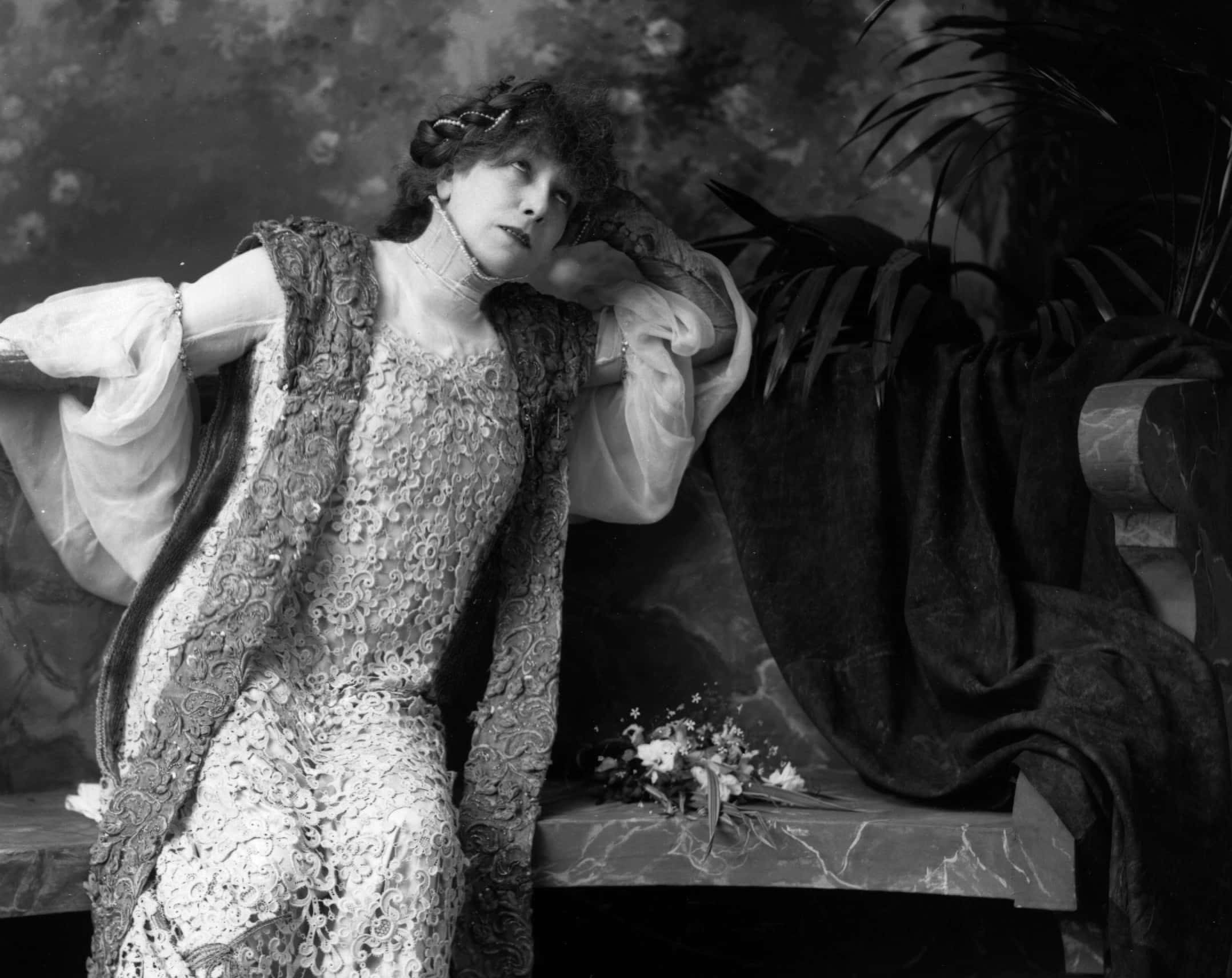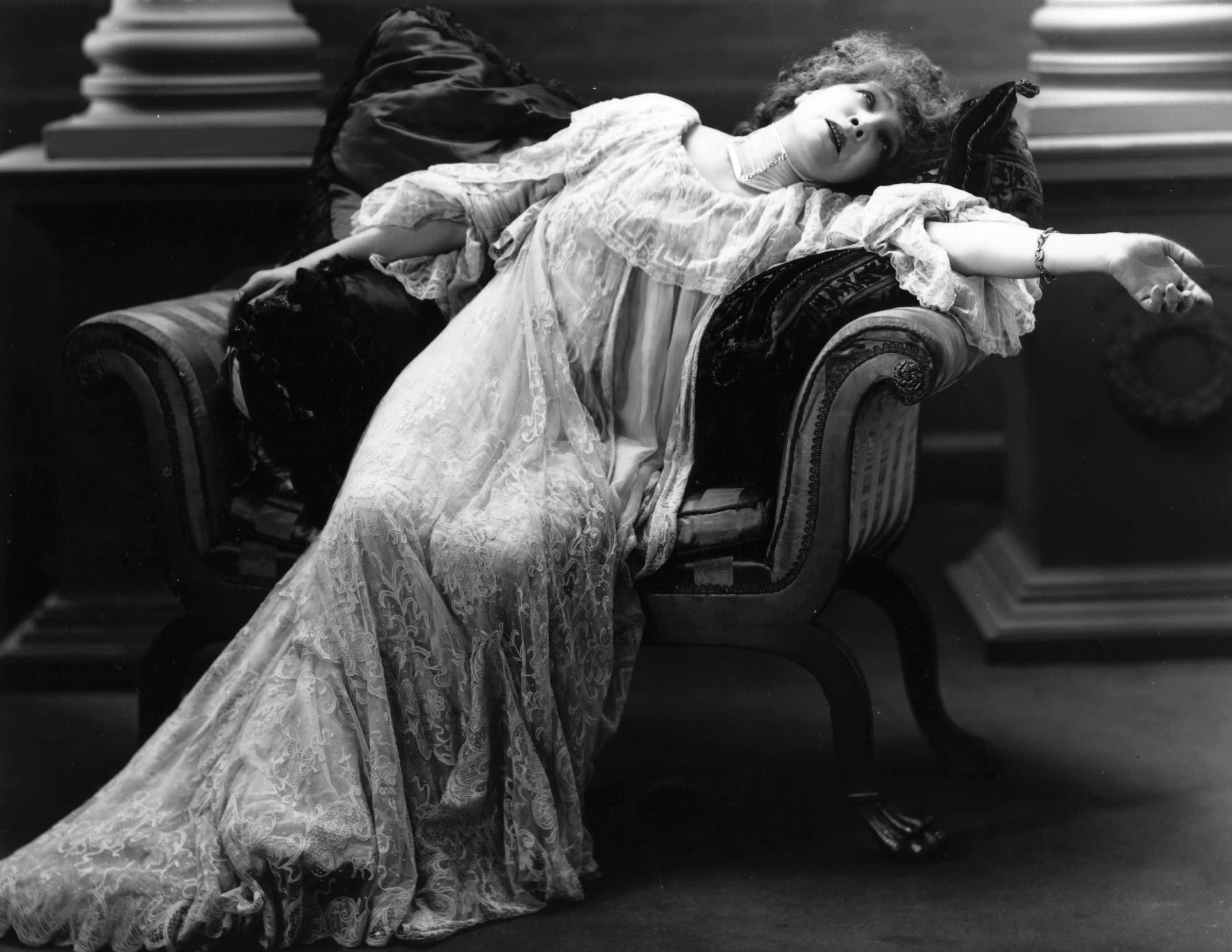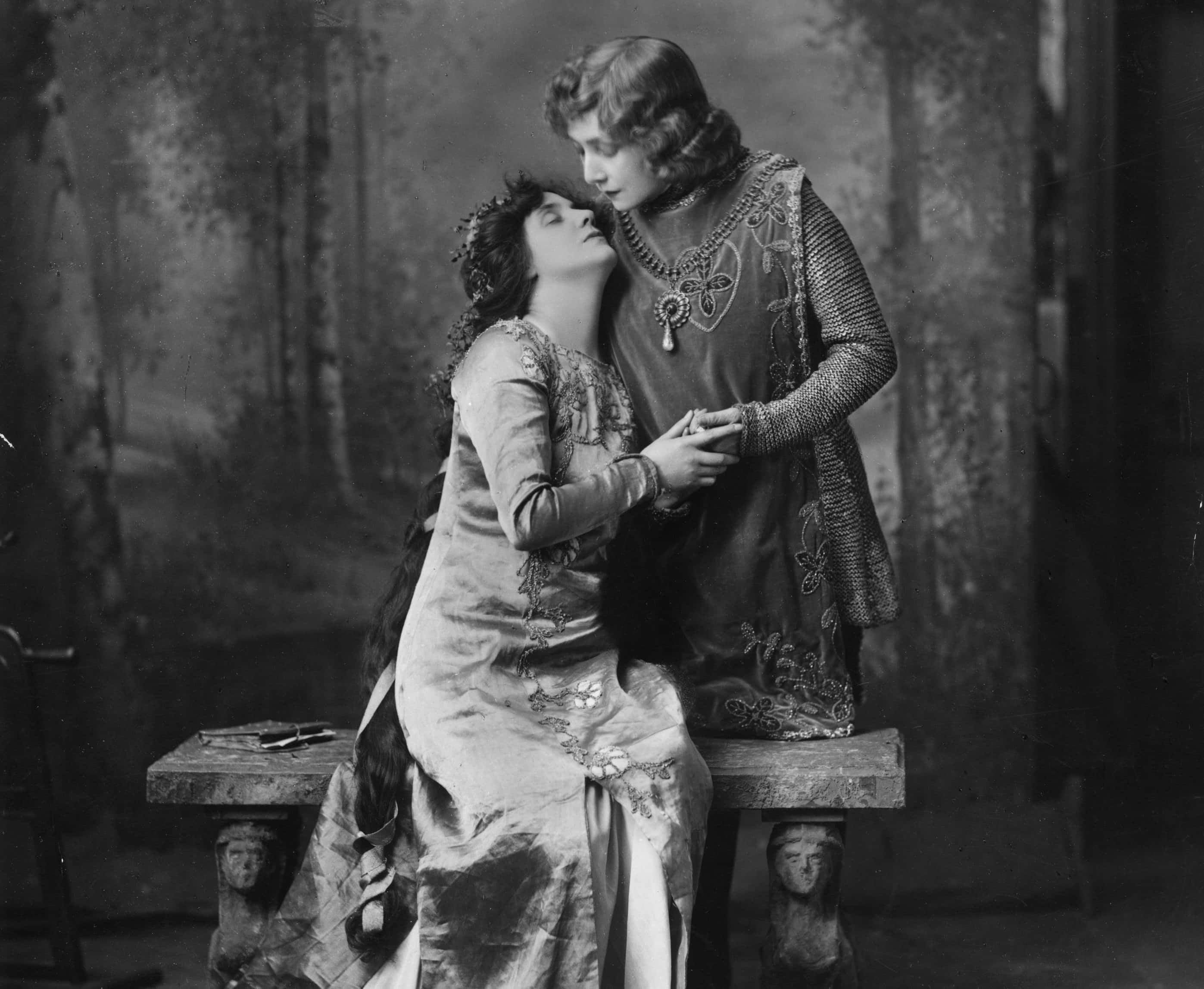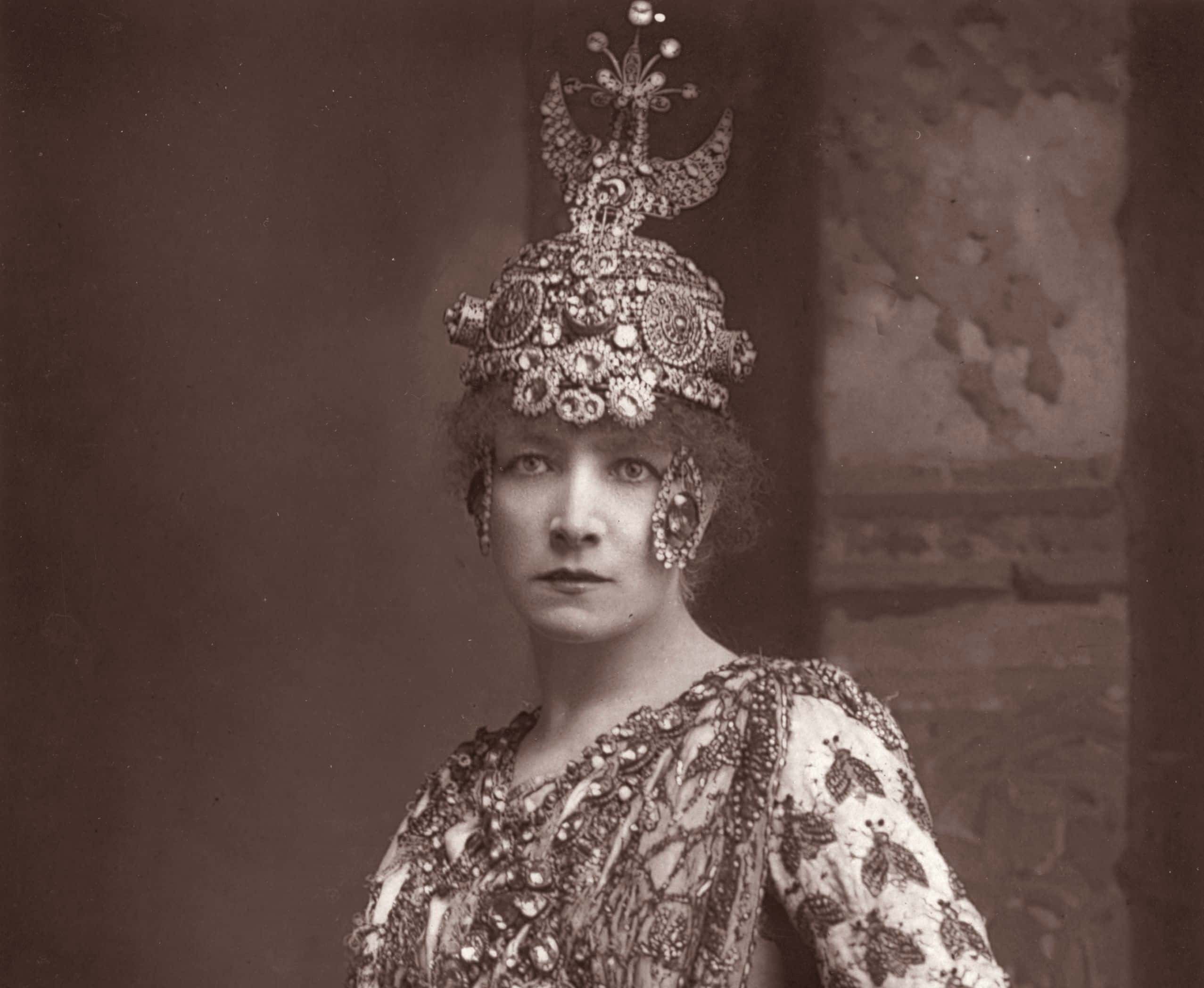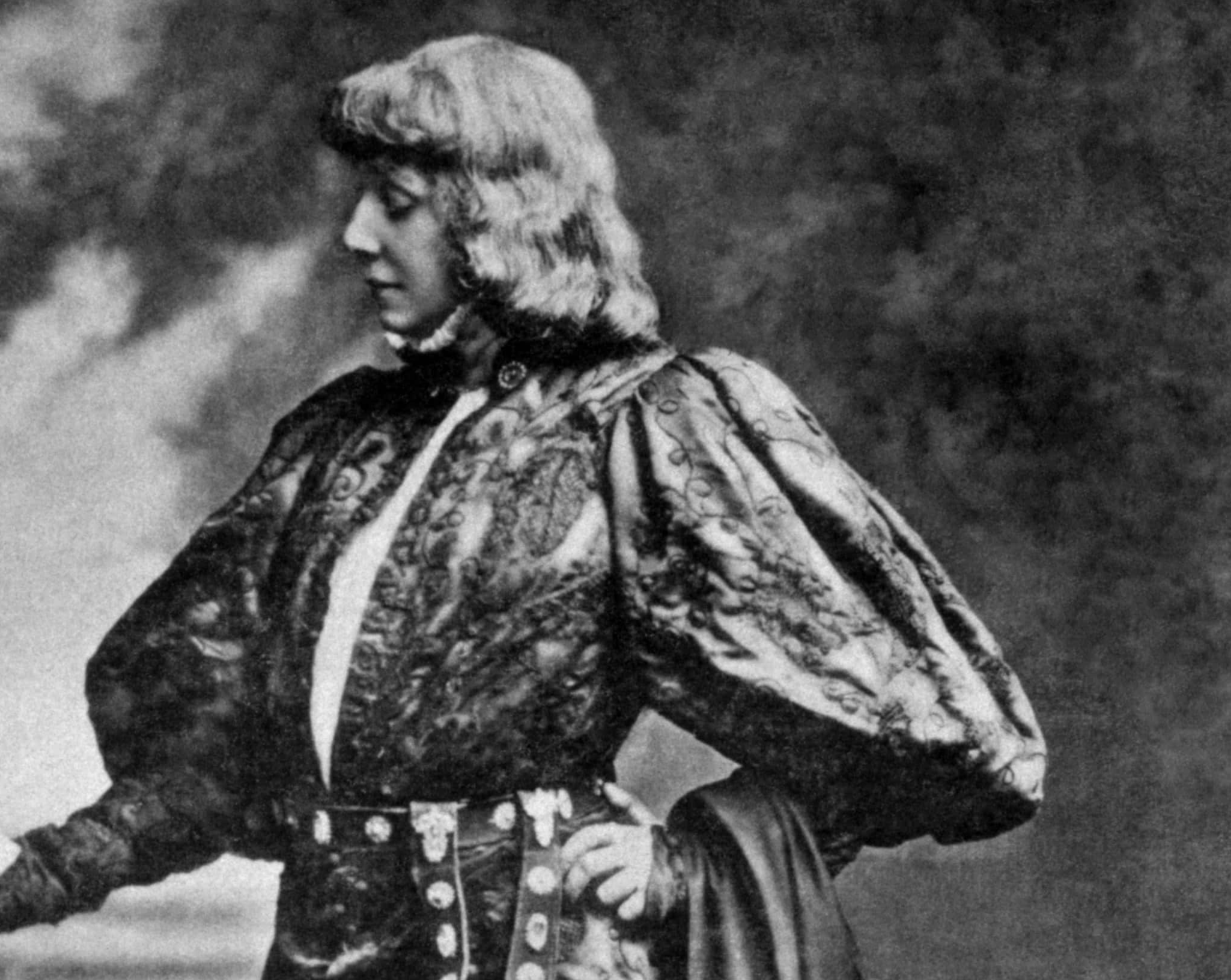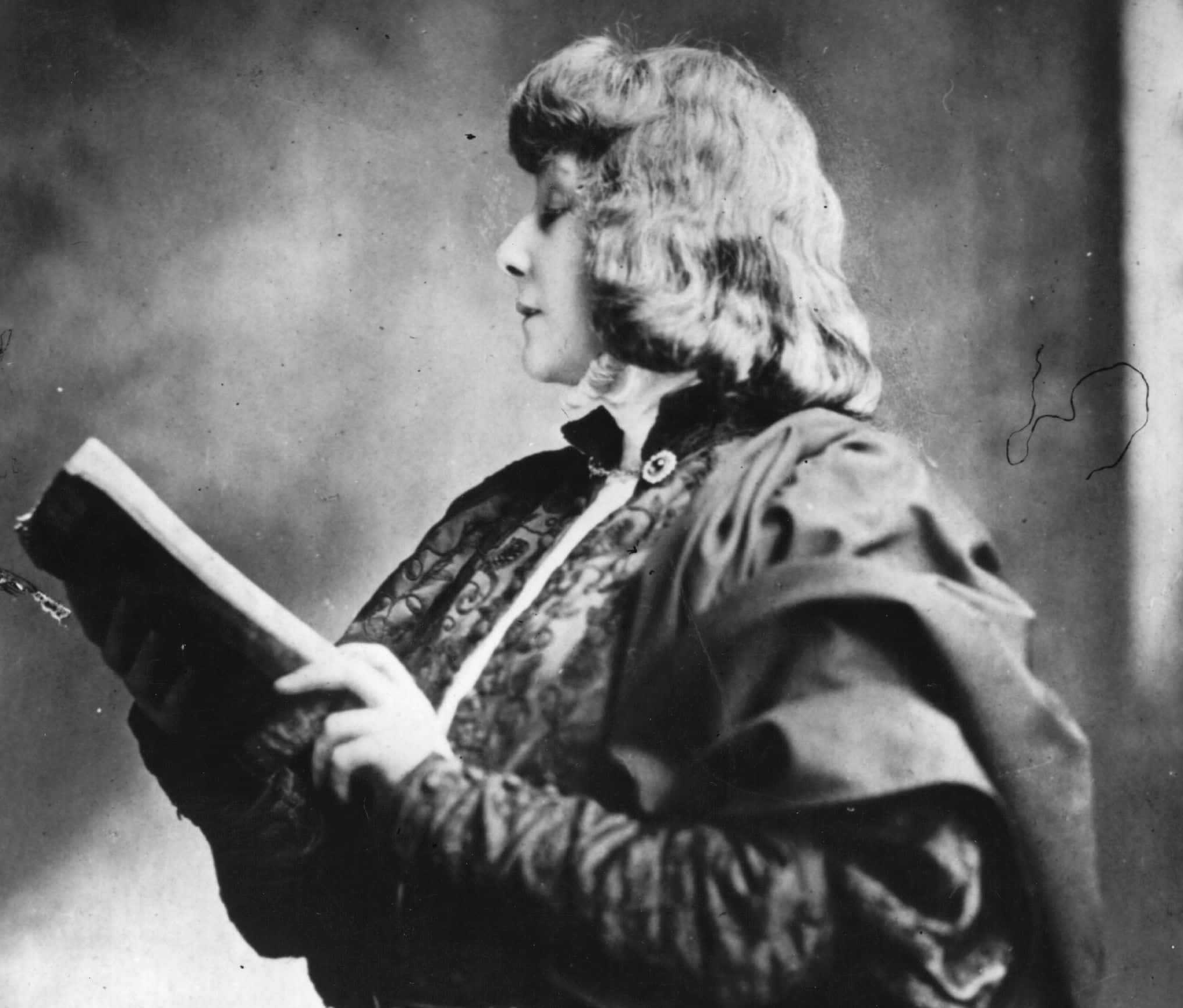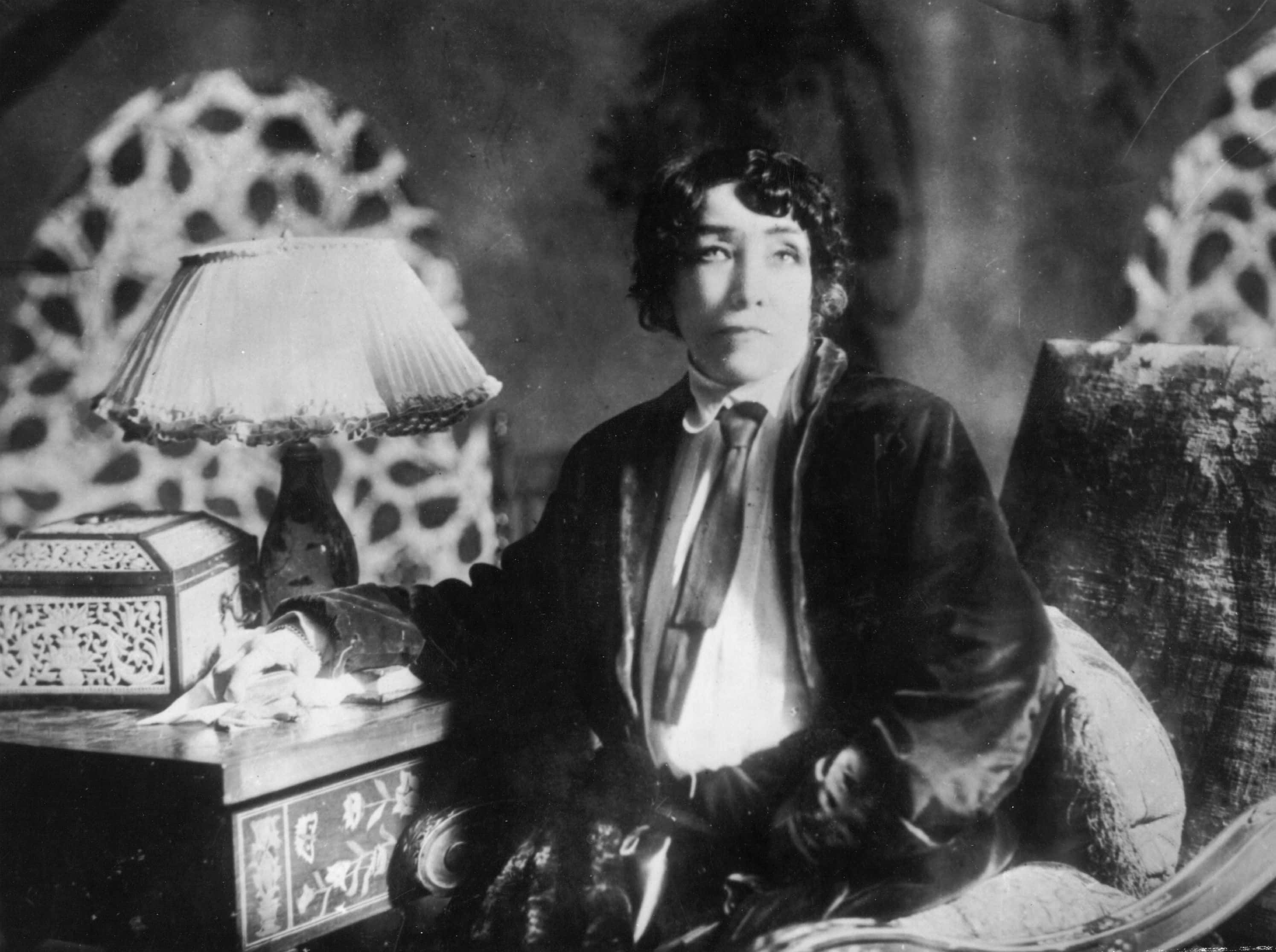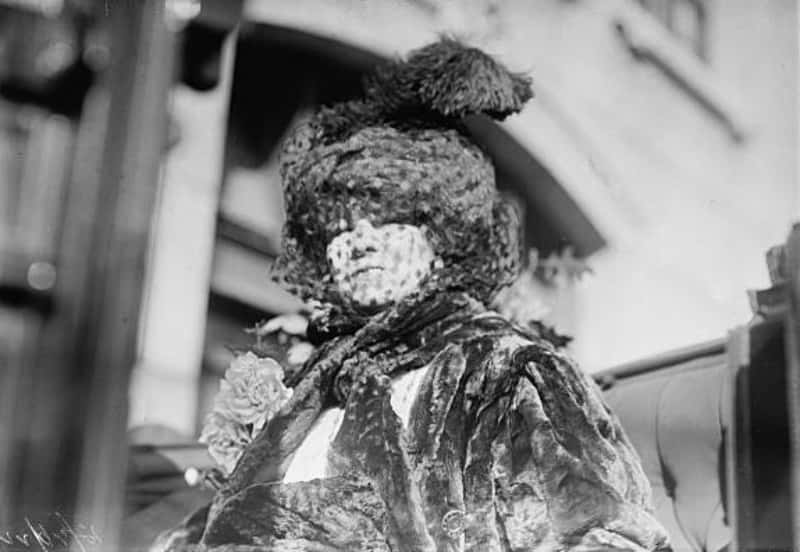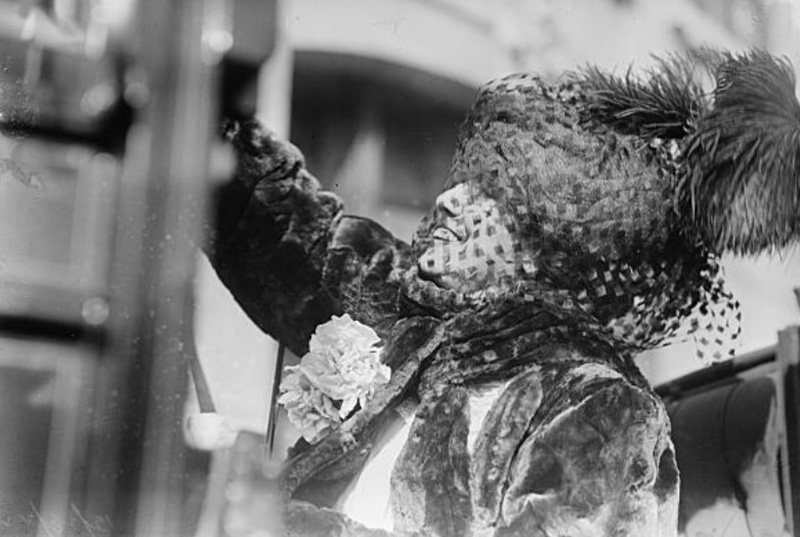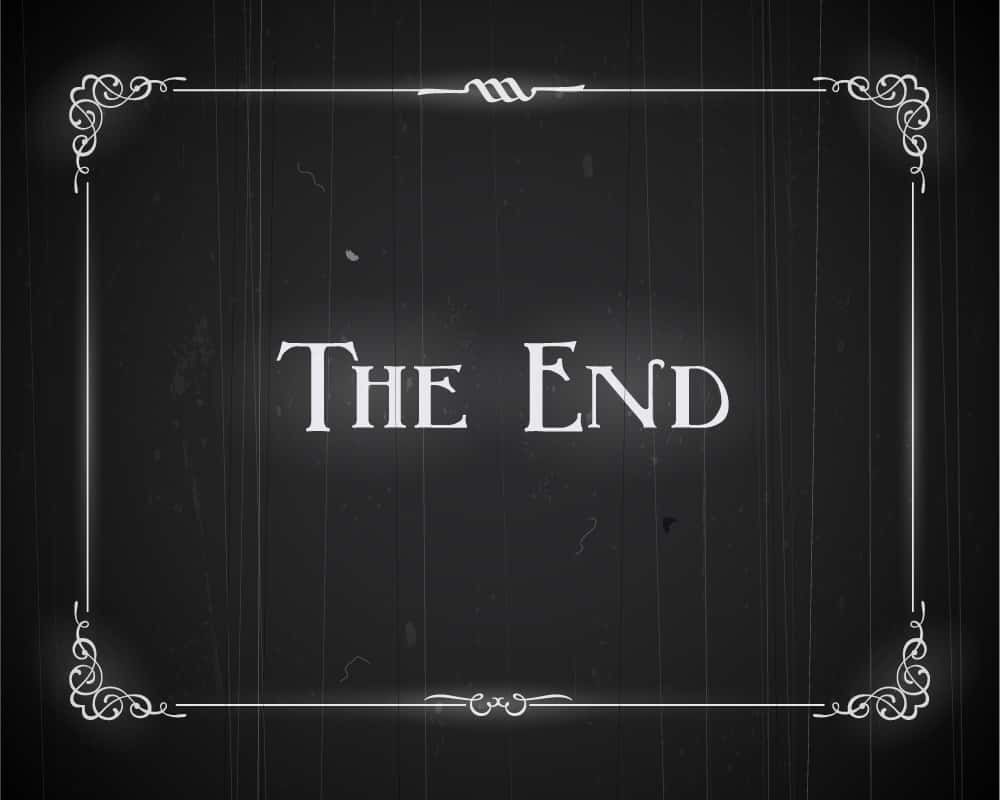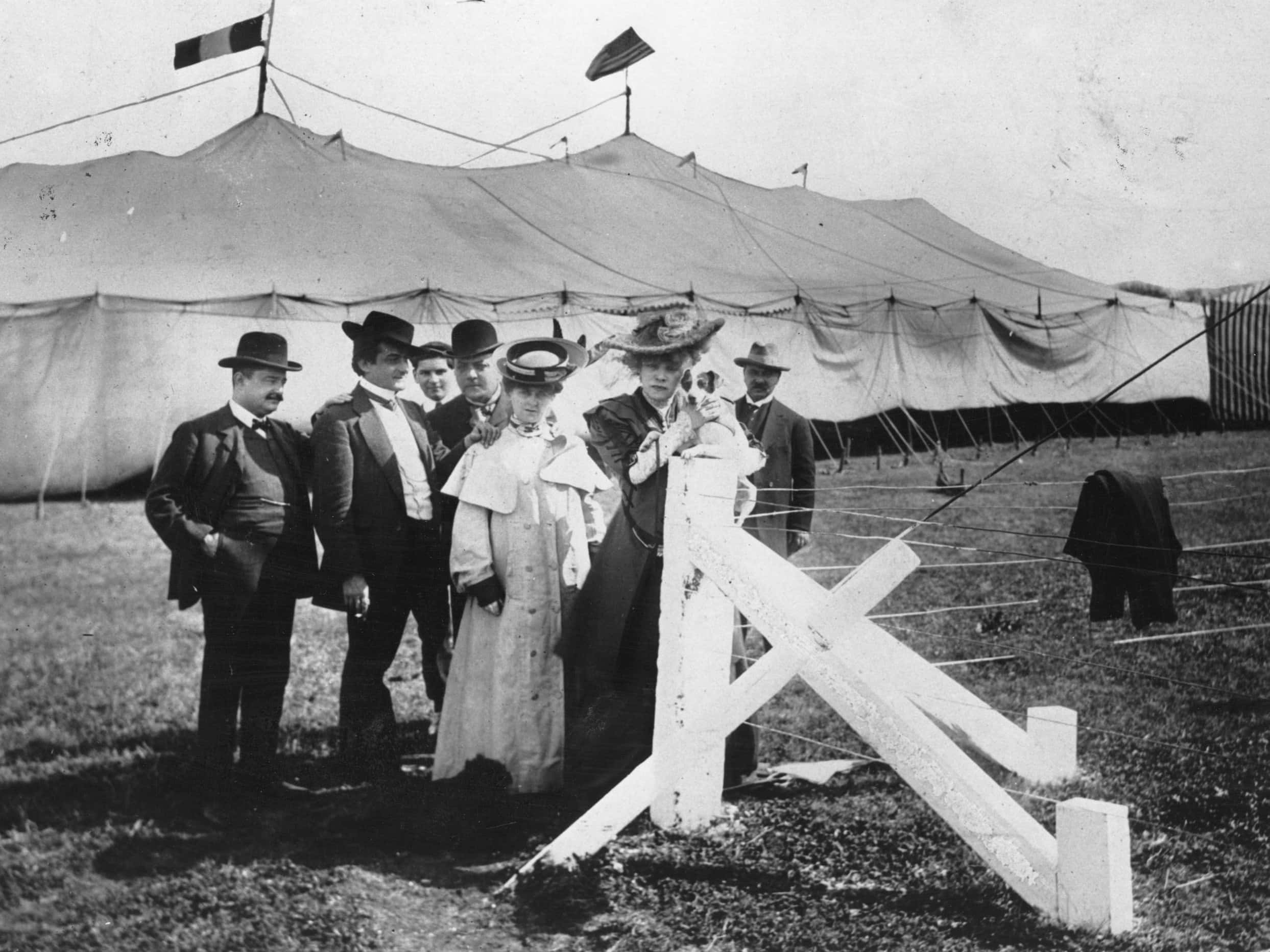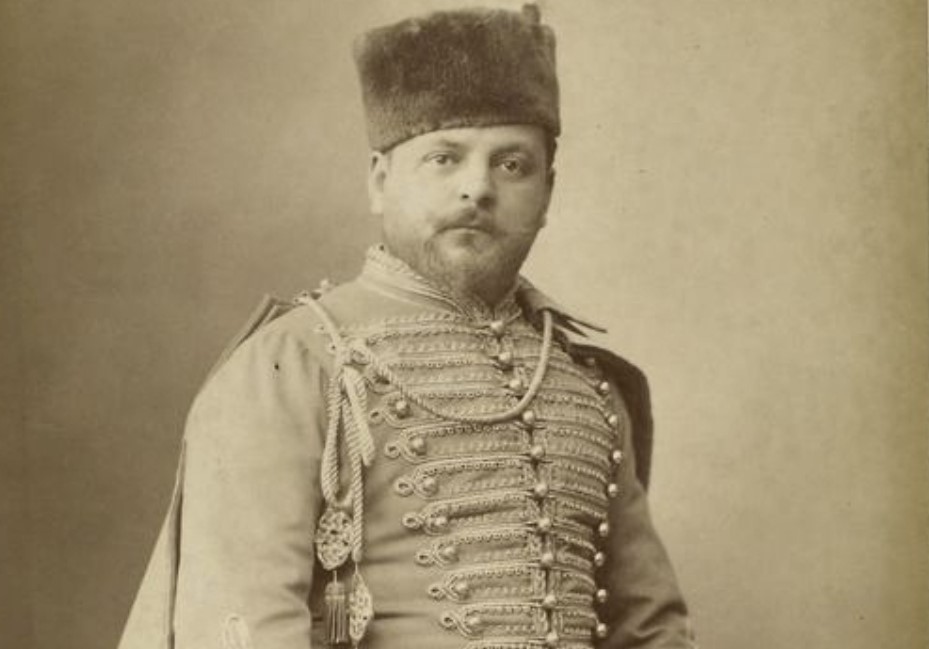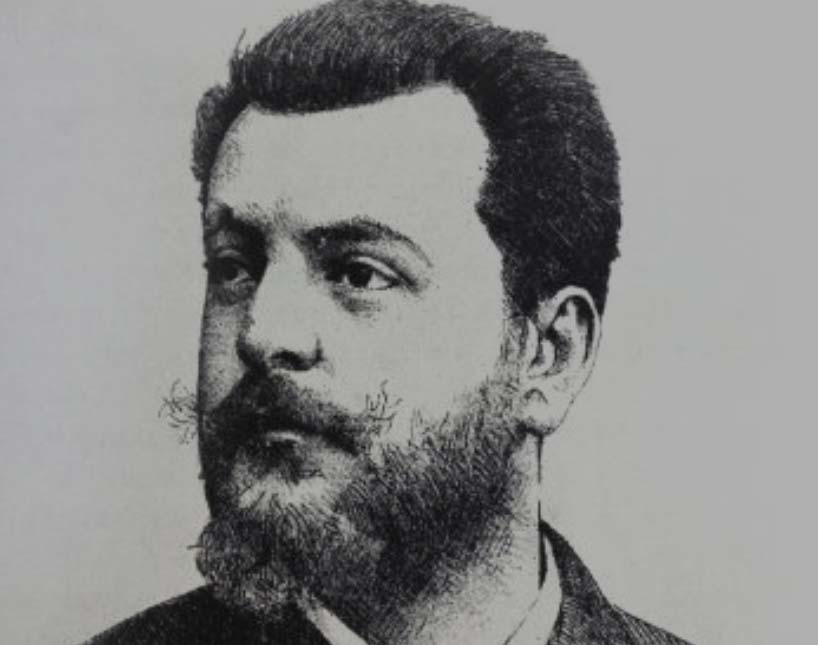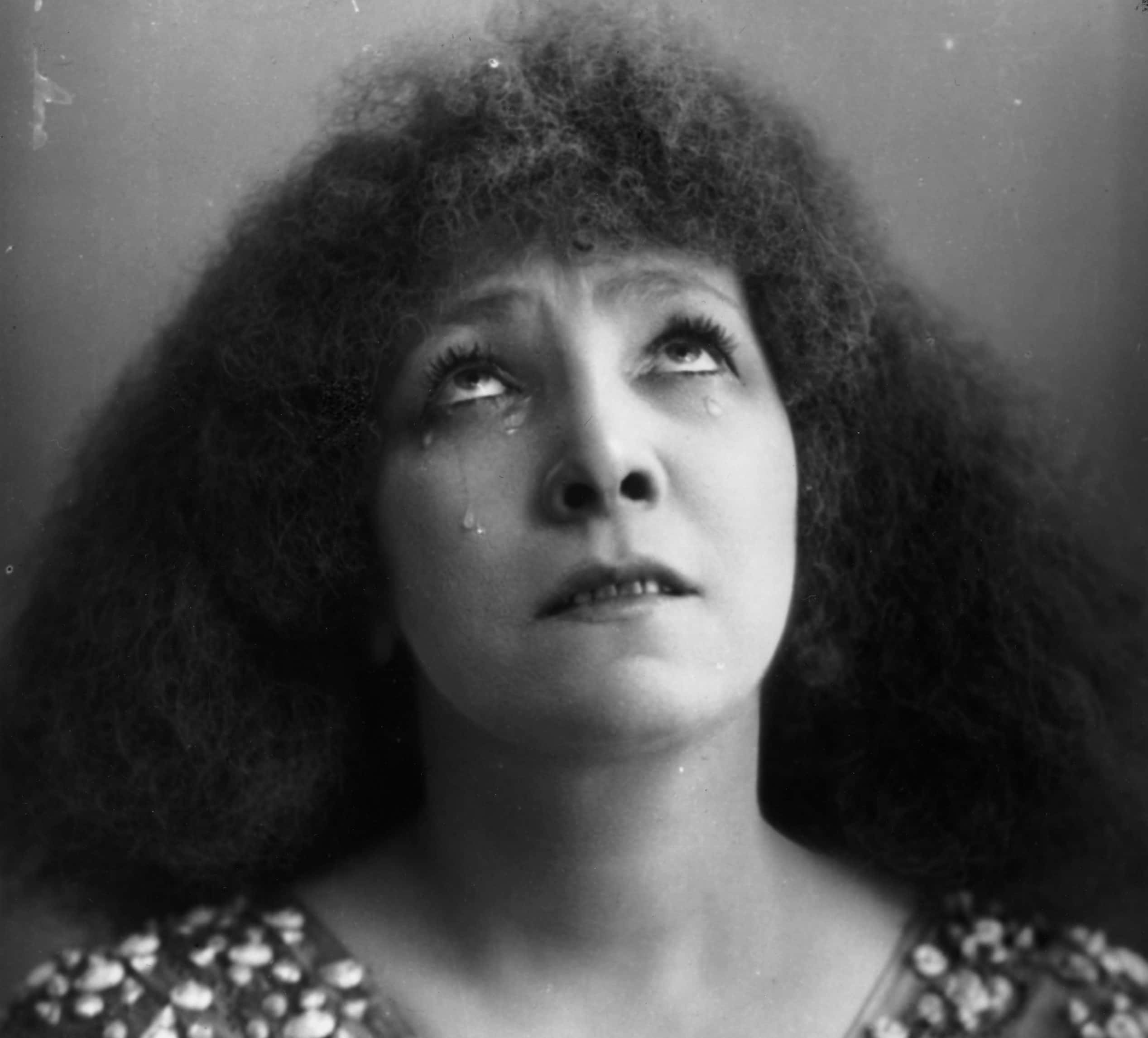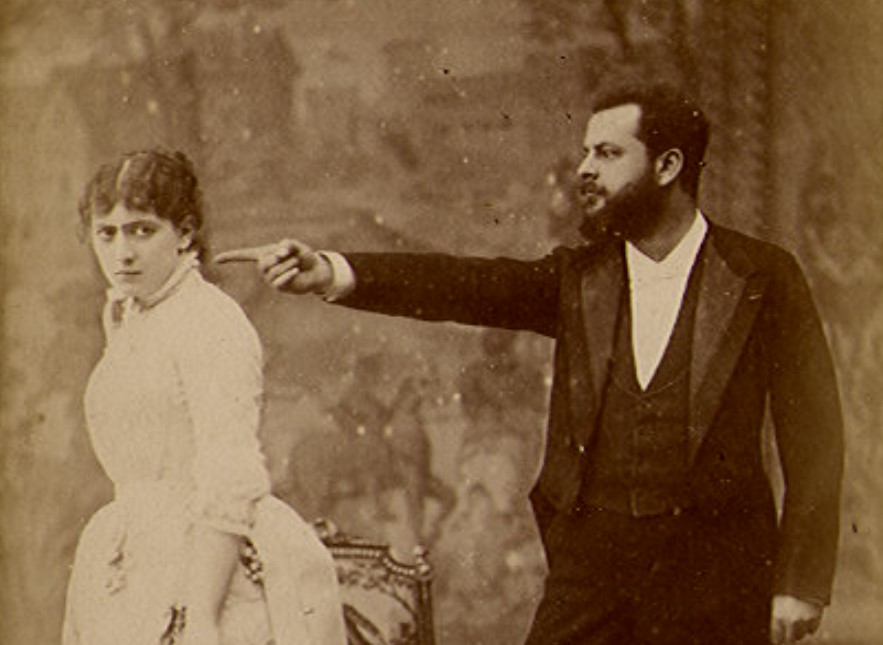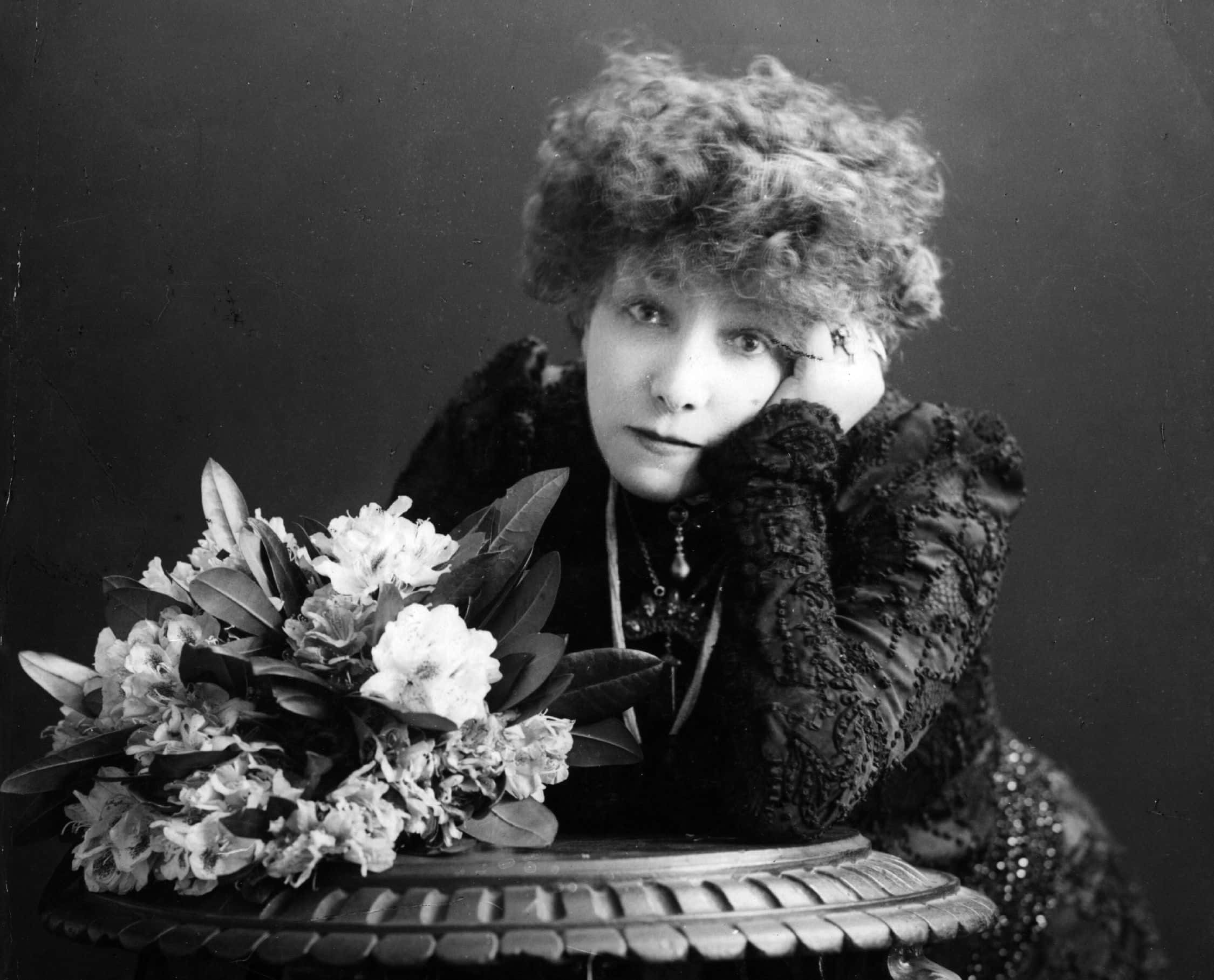“The Divine” Sarah Bernhardt was known in all corners of the globe—and at a time when international travel took months. A true visionary, she redefined stage acting in the 19th century, and in the 20th century she became one of the first movie stars.
Glamorous, mysterious, provocative, and eccentric, Bernhardt was the prototype for a generation of Hollywood starlets. Here are 42 divine facts about Sarah Bernhardt.
1. Humble Beginnings
Henriette-Rosine Bernard was born in Paris on October 22, or perhaps the 23rd, in 1844. The daughter of a beautiful but dissolute Parisian courtesan named Judith, the future Sarah Bernhardt only met her father a couple of times, but he did pay for her education and provided her with a trust fund once she came of age.
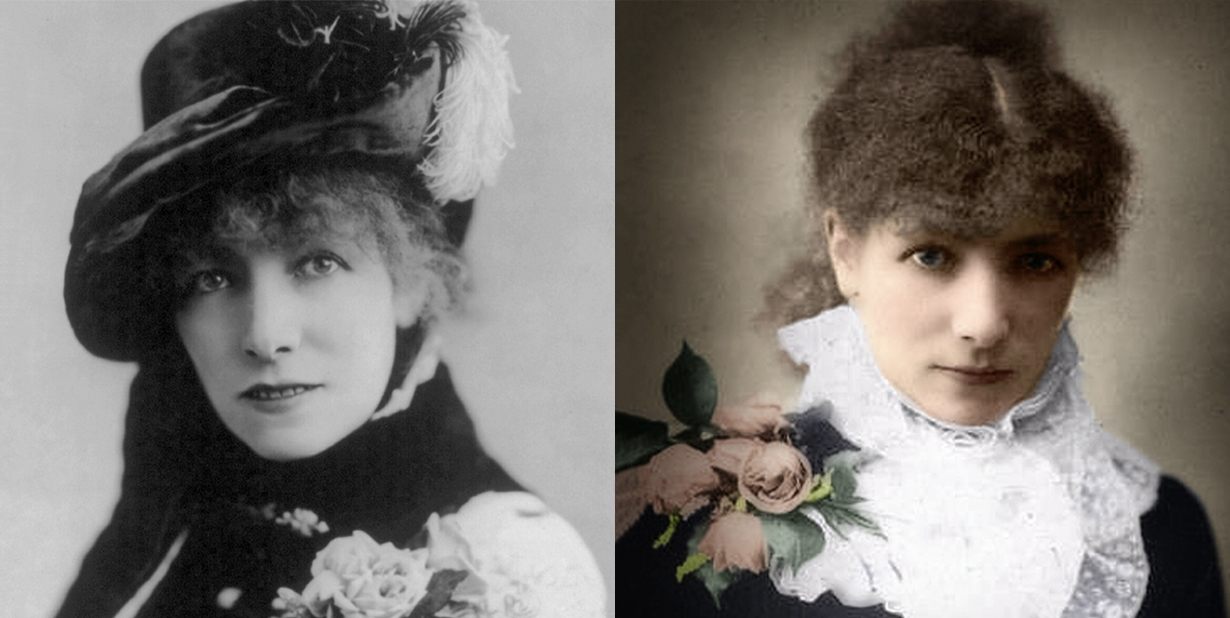
2. Keeping the Faith
Her father's purse strings came with, well, strings attached. In exchange for his money, he demanded that she be baptised as a Roman Catholic, and that she was educated in Catholic-run schools. Bernhardt’s mother, however, was Jewish, and Bernhardt stubbornly continued to identify herself as “a member of the Jewish race” until her demise.
3. Rites and Wrongs
The free-spirited Sarah ran scandalously afoul of her teachers while at the stern and forbidding Grandchamp convent school. When her pet lizard perished, Bernhardt arranged to give the beloved creature a full Christian burial complete with a procession and ceremony. This was a big no-no for the nuns, who accused the little girl of gross sacrilege.
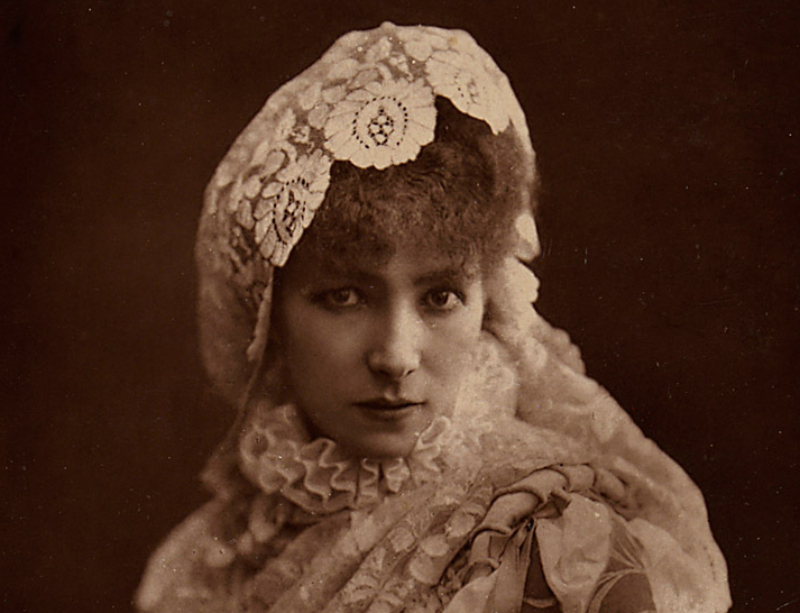 Unknown Author, Wikimedia Commons
Unknown Author, Wikimedia Commons
4. Drafted
Bernhardt's childhood was far from idyllic, but it was about to become utterly tragic. When she was just 15, her Daddy Warbucks father passed unexpectedly. Little Sarah was probably heartbroken—but more importantly, she was left without an allowance. Desperate for income of any kind, her mother decided she should become an actress.
Bernhardt herself wasn't keen on the idea: not only was she planning on becoming a nun, she had never even been to a theater before.
5. Put Me in, Coach
Set on the idea of her daughter on the stage, Bernhardt’s mother hired an old, famous friend to serve as the girl's acting coach: none other than Alexandre Dumas, the author of The Three Musketeers. Dumas secured an audition for his pupil with the renowned Paris Conservatory. After some deliberation, and much to Bernhardt’s surprise, she was accepted.
6. My Little Star
To rectify her ignorance about the theater, Bernhardt's mother and some friends took her to see the play Britannicus by Jean Racine as well as another Greek comedy. While sitting in the audience for the first time, little Bernhardt was so moved by the performance that she started sobbing loudly and uncontrollably, disturbing the other viewers.
Though her mother was annoyed at her outburst, Dumas was incredibly touched by her green, emotional openness. He proclaimed she was meant for the stage, and called her "my little star".
7. Tough Love
After years at the Conservatory, Bernhardt made her stage debut in a production of Racine’s Iphigenie. It was an absolute disaster. Bernhardt completely flubbed her performance and sped through her lines, so much so that her teacher snapped at her backstage, “I can forgive you, and eventually you will forgive yourself, but Racine in his grave never will".
8. Never Too Late to Say You’re Sorry
Bernhardt’s career was off to an inauspicious start, but she already had her diva behavior down pat: When a theater doorman greeted her as “the little Bernhardt,” she snapped her umbrella over his head. She did make it up to him in time, however. When the doorman retired 20 years later, Bernhardt bought him a cottage in the country.
9. Cat Fight
From this outburst onward, Bernhardt developed a white-hot temper, but 1863 saw her worst tantrum yet. Sarah and her sister Regina were at an extravagant actors' ball when Regina accidentally stepped on the gown of an equally temperamental lead actress named Madame Nathalie. Nathalie's reaction was to violently shove Regina away—something Sarah absolutely could not stand for.
Sarah promptly slapped the shocked Madame Nathalie. In a fit of rage, the established actress demanded Sarah be ousted from the company unless she apologized. When the stubborn, furious Bernhardt refused to say sorry on no uncertain terms, the theater company had no choice but to drop her in favor of their more lucrative diva.
10. A King-Sized Insult
This was far from Bernhardt's last controversy. Not much later, she offended the Emperor Napoleon III himself. During a performance the emperor was attending, Bernhardt recited two poems by Victor Hugo—who, unbeknownst to her, was a staunch critic of Napoleon. The emperor got so riled up that he stormed out of the theater, taking his wife, court, and other guests with him.
By the end of the year, Bernhardt quit acting altogether. Her next plan? To travel around Europe and "take up lovers".
12. Single Mother
Sooner or later, all her passionate European affairs were bound to have scandalous consequences. Bernhardt quickly got pregnant by no less than the Belgian Prince de Ligne, Henri. Their son Maurice was born in 1864, yet the three were far from a happy family. The royal Henri had no part in raising the child—but this was not done out of scorn.
Bernhardt had returned to Paris to care for her ailing mother soon after their dalliance, and Henri never even knew she was pregnant.
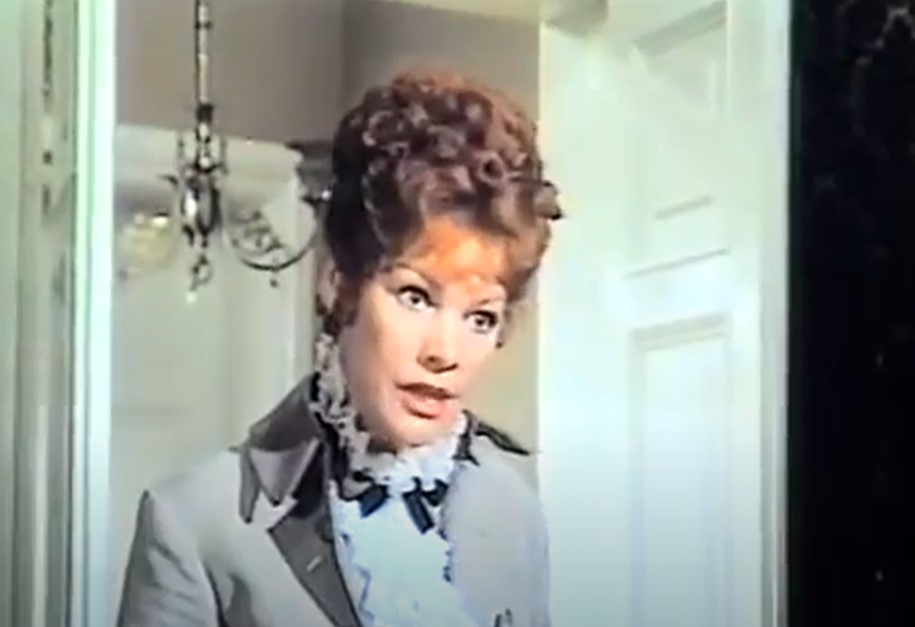 The Incredible Sarah (1976), Anchor Bay Entertainment
The Incredible Sarah (1976), Anchor Bay Entertainment
13. Mama’s Boy
By the time Maurice reached adulthood, Henri had discovered the truth and offered to recognize him as his son. The aristocrat even wanted to grant his heir a considerable fortune. But Maurice was as stubborn as his mom Sarah, and loyal to her work raising him as a single mother. He declined, and continued to use the name “Maurice Bernhardt" for the rest of his life.
14. Toast of the Town
Despite her steamy European jaunts, the stage still called out to Bernhardt, and she returned to the theater in the late 1860s. When she did, her career skyrocketed. She starred in a string of enormous hits, and before long she was the most popular actor in Paris. She took full advantage, and struck up friendships with famous artists like George Sand and Gustave Flaubert.
15. Such Great Heights
Her fame, however, came with some problems. Once, as a publicity stunt, she flew over Paris in a hot air balloon emblazoned with the name of her latest character—but then the caper went horribly awry. The wind suddenly shifted, blowing the balloon into a small town several miles away. She managed to find her way back, only to face more controversy.
Her theater manager was furious that she had seemingly traipsed off. Citing a bizarre, ancient rule about actors not being allowed to leave Paris without permission, he charged her 1,000 francs for insubordination. Bernhardt naturally refused at first, before they made an advantageous compromise: She would pay the fine, but would also be promoted to "societaire," the highest rank of the theater.
Whatever Sarah wants, Sarah gets.
16. Around the World
In her lifetime, Bernhardt was most famous for her role as the beautiful Marguerite in the play La Dame aux Camellias. She played the role hundreds, if not thousands, of times throughout her life, well into her old age. It's reported that almost every time she acted in the part, the whole audience was sobbing by the time she got to Marguerite's demise scene.
17. Pressing Matters
Bernhardt was no wallflower, and she delighted in being in the spotlight—but she also made sure it was on her own terms. She would often write letters to newspaper editors responding to negative reviews of her acting, speculation about her weight, or gossip about her personal life. Other times, she would take the easy route and just sue the paper.
18. I’ll Show You
Bernhardt loved to spite her critics, especially when it came to remarks about her looks. When one critic commented on her large nose, Bernhardt began having her picture taken in profile; when another called her “a broomstick,” Bernhardt began wearing tight-fitting bodices to accentuate her slender frame. She also refused to straighten her wild, curly hair.
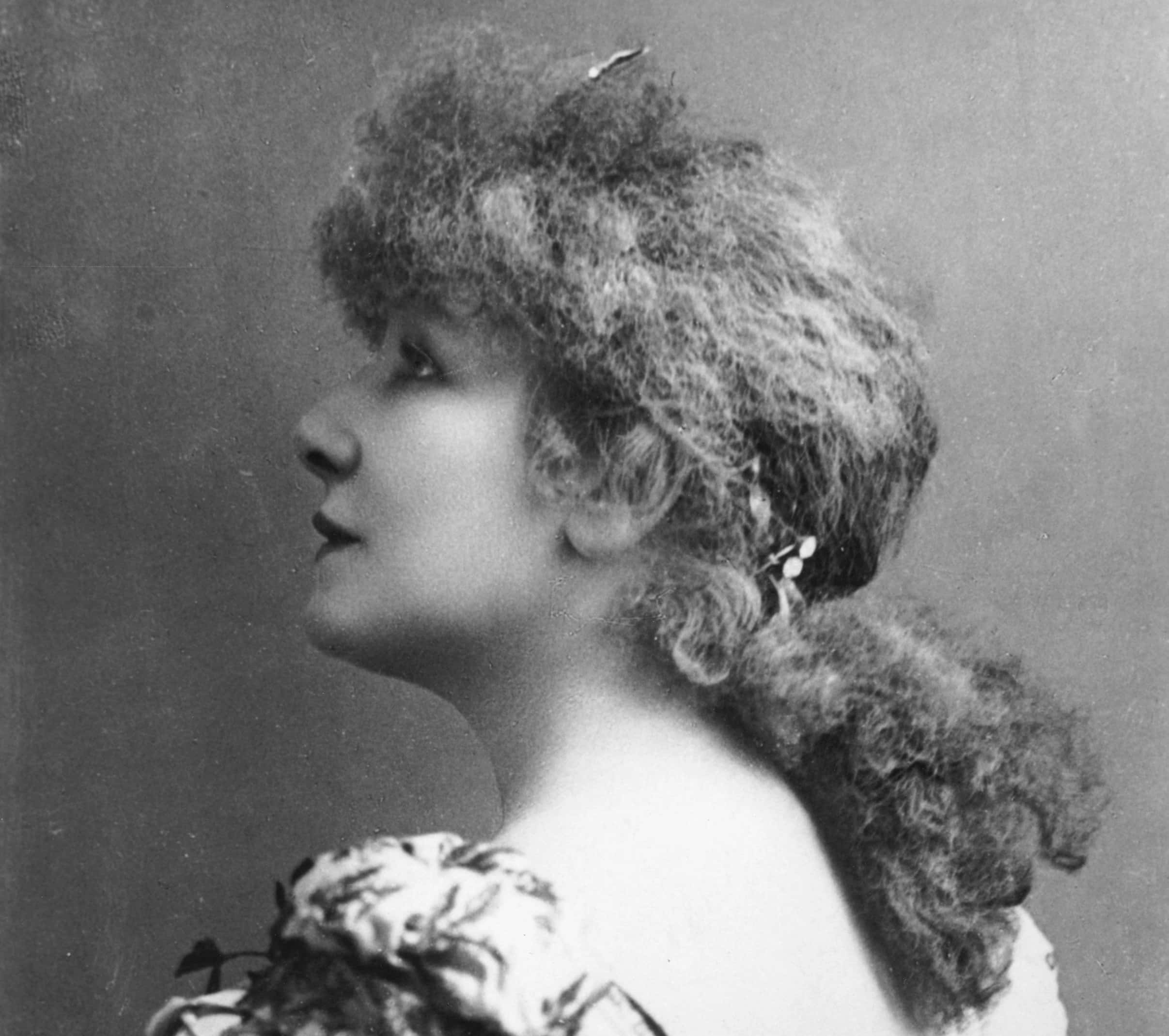 Getty Images
Getty Images
19. A Coffin Fit for a Queen
Bernhardt had a peculiar obsession with passing. From the tender age of 15 onward, she sometimes slept in a custom-made, satin-lined rosewood coffin—she said it helped her study for new roles. This trademark luxury coffin became infamous the world round, and Bernhardt was often photographed in it for publicity stills.
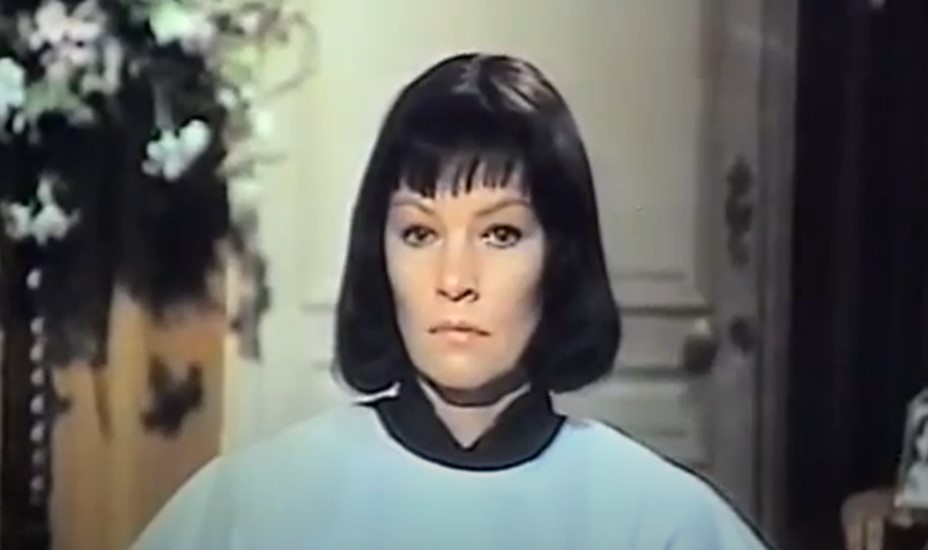 The Incredible Sarah (1976), Anchor Bay Entertainment
The Incredible Sarah (1976), Anchor Bay Entertainment
20. Only Lovers Left Alive
But a satin-lined coffin didn't turn out to be quite enough for the Divine Sarah Bernhardt: the morbid casket was also reportedly lined with letters from her former and current lovers.
21. Career of taking her life
Bernhardt’s fixation with demise extended to her acting career: She loved playing characters who passed at the end of the play, and this too became a trademark of hers. Once, while performing in front of a particularly inattentive American audience, Bernhardt reportedly stopped midway through a speech and announced, “If they don’t keep quiet, I will pass in the second act".
22. Gender Swapped
Bernhardt also loved playing male roles when the opportunity presented itself. She felt these roles were usually better written and expressed a greater range of intellect and emotion, letting her do more on stage. Given the slim pickings there were for female roles at the time, we'd say she was probably right about this one.
23. Animal Instincts
Bernhardt loved animals. Her personal menagerie included everything from a cheetah to six chameleons.
24. Take a Seat
She also collected chairs, and her obsession with them got so unmanageable that the furniture would fill up entire houses she was staying in. Bizarrely, chairs were on her mind even when she wasn't at home: After she took a hot air balloon ride once, she wrote a book called "In the Clouds, Impressions of a Chair". We're going to need an English student to interpret that one for us.
25. What a Racket
Bernhardt was a sore loser, and indeed avoided losing entirely if she could ever help it. She had frequent guests in her summer house, and loved goading them into games of tennis. These matches weren't as fun as they might sound, though. The tennis was played under house rules, the chief of which was: “Sarah Bernhardt must be declared the winner".
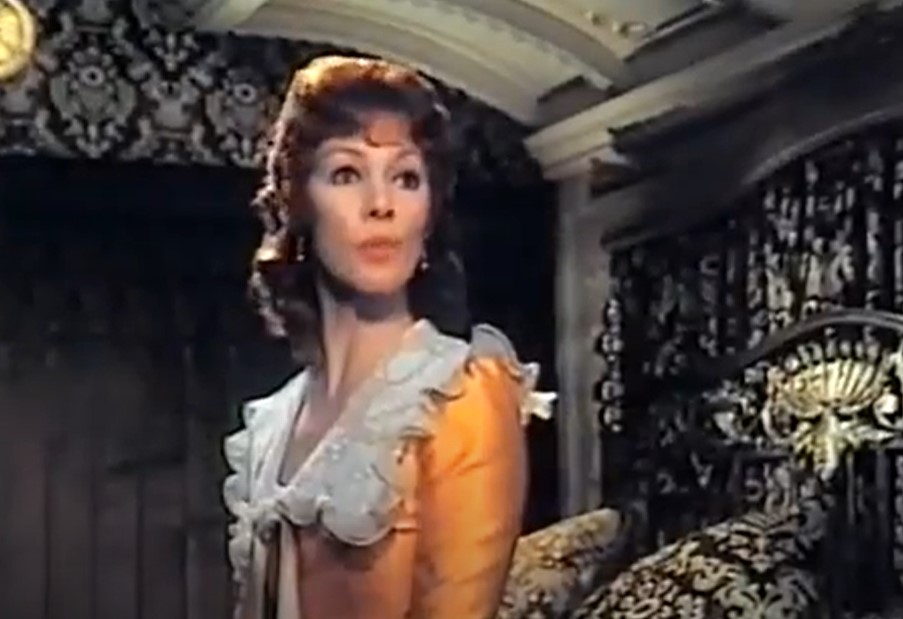 The Incredible Sarah (1976), Anchor Bay Entertainment
The Incredible Sarah (1976), Anchor Bay Entertainment
26. Great Dane
In 1899, Bernhardt took on the monumental role of Hamlet in Shakespeare's play of the same name. She was tired of being relegated to the Ophelia part in the masterpiece, and decided to put on the show in her own theater. Many audiences said she was electric in the role, and played the Danish prince with a femininity and directness all her own.
27. That’s One Way to Get a Head
In the famous “Alas, poor Yorick” scene in Hamlet, Bernhardt used a real human skull as a prop—but it wasn't just any old human skull. The macabre remains came, naturally, from her own personal collection, and had been given to her by one of her famous admirers: the respected novelist and playwright Victor Hugo.
28. At the Movies
In 1900, Bernhardt starred in Le Duel d’Hamlet, which marked her on-screen debut and was the first time a woman played Hamlet on film. In fact, it's a movie full of important firsts: Bernhardt also speaks in the footage, making her the very first actress to have a speaking role in a film. Take that, Greta Garbo.
29. In the Jailhouse Now
It’s hard to imagine two performers as different as Sarah Bernhardt and country legend Johnny Cash, but the two stars did share one thing in common: they both famously performed at San Quentin Penal institution. Bernhardt gave a performance of the short play A Christmas Night During the Terror at the penitentiary in 1906.
30. Break a Leg
In 1906, after a long and illustrious career, true tragedy finally came for Sarah Bernhardt. During a performance in Rio de Janeiro, she injured her leg after leaping from a wall to complete a demise scene. The pain was so horrific that she fainted on impact, but when she was brought to a hospital, the ever-stubborn Sarah refused medical help.
The limb never healed properly, turned gangrenous, and eventually had to be amputated in 1915.
31. Taking It Lying Down
Now disabled and aging, a proud Bernhardt refused to use either a prosthetic or a wheelchair. Oh no, these options were far too mundane for The Divine Sarah. Instead, she hired two servants to carry her around in a custom-made, luxurious litter. Though the amputation did limit her mobility, Bernhardt continued to perform on stage, propping herself up on a lounge chair.
32. The Show Must Go on
In 1922, when she was well into her 70s, Bernhardt was still going strong and performing regularly—but things were about to take a dark turn. Bernhardt was busy rehearsing for a new play when she fell into a sudden coma. She recovered in an hour or so, but it was an omen of tragedies to come. Still, in true Bernhardt fashion, her first words when she woke up were: “when do I go on?”
33. Home Movie
Still in recovery from her abrupt coma, Bernhardt continued to rehearse and accept offers to appear in the newest plays and films. Unable to travel much, she even had her lavish hotel room in Paris converted into a movie set so she could appear in the movie The Clairvoyant. Sadly, she wouldn't live to film it.
34. Curtain Call
Sarah Bernhardt, the greatest actress of her generation, "the queen of the pose and the princess of the gesture," passed of uremia on March 26, 1923, at the age of 78. She had lived a truly captivating and scandalous life, but she still had one last performance to make. In true dramatic fashion, she passed in her home, collapsing into the arms of her beloved only son Maurice.
35. Friends in High Places
Bernhardt's travels in Europe "taking up lovers" during her brief hiatus proved to be less of a luxury and more of necessity. In fact, archived authorities dossiers reveal that Bernhardt was working as a high-priced courtesan while winding her way through the continent. Her clients included well-known bankers, industrialists, and diplomats—and possibly the future Edward VII of England, who was undoubtedly her lover either way.
36. Girls Love Bad Boys
In 1882, Bernhardt met the handsome, devious Greek diplomat Aristide Damala, a man who was described as "handsome as Adonis, insolent, vain, and altogether despicable". Damala’s previous affairs with (married) women had been utterly destructive: two of them ended in divorce and one in self liquidation. It got so bad that the French GOVERNMENT had to step in and ask him, for the love of God, to leave Paris and stop seducing its women.
Naturally, Bernhardt fell head over heels and married him that same year.
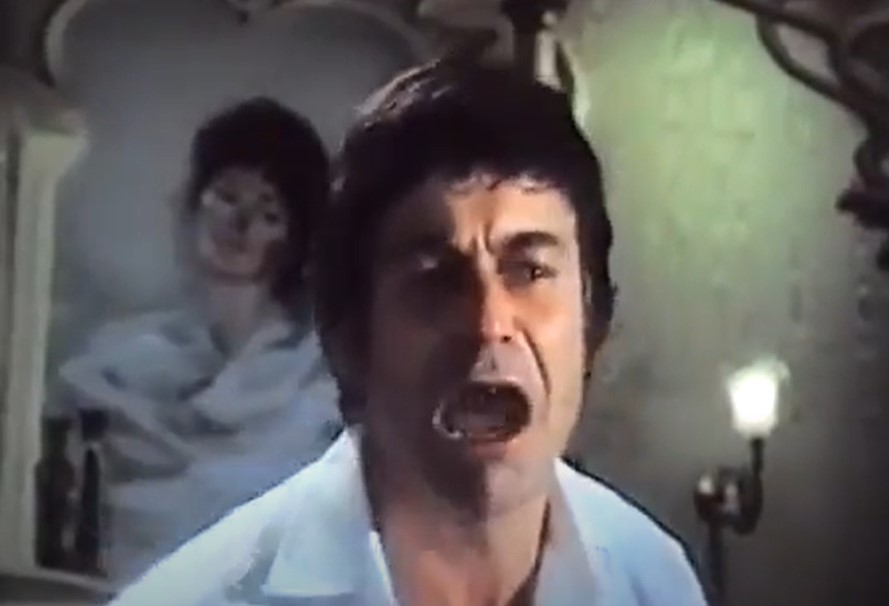 The Incredible Sarah (1976), Anchor Bay Entertainment
The Incredible Sarah (1976), Anchor Bay Entertainment
37. Love Connections
Bernhardt, however, had her own magnetic charm, and she even managed to persuade Damala to quit politics and become an actor. While he was incredibly handsome, he was also incredibly talentless. This didn't matter much, though: Bernhardt’s influence ensured that he got a steady stream of work throughout their marriage.
38. New Horizons
When friends asked her why in the world she'd decided to marry (much less marry Damala, of all people), Bernhardt replied that she'd done it because marriage was the only thing she hadn't yet experienced.
39. Happily Ever After?
Bernhardt’s relationship with Damala was unsurprisingly tempestuous. He was incredibly cruel to her and delighted in humiliating her, even once sitting in the front row of one of her plays and making faces while she acted. Sadly, this was far from the worst of his behavior: One day, she discovered that he had been using her money to buy gifts for his many mistresses.
40. Down and out in Paris and London
Damala lived life on the edge, and eventually his bad habits had to catch up with him. He quickly developed a disastrous morphine addiction, stormed in and out of Bernhardt's life, and began forgetting his lines. In a few short years, his dashing good looks had all but disappeared. One unimpressed critic wrote simply but scathingly, "he makes us feel sick".
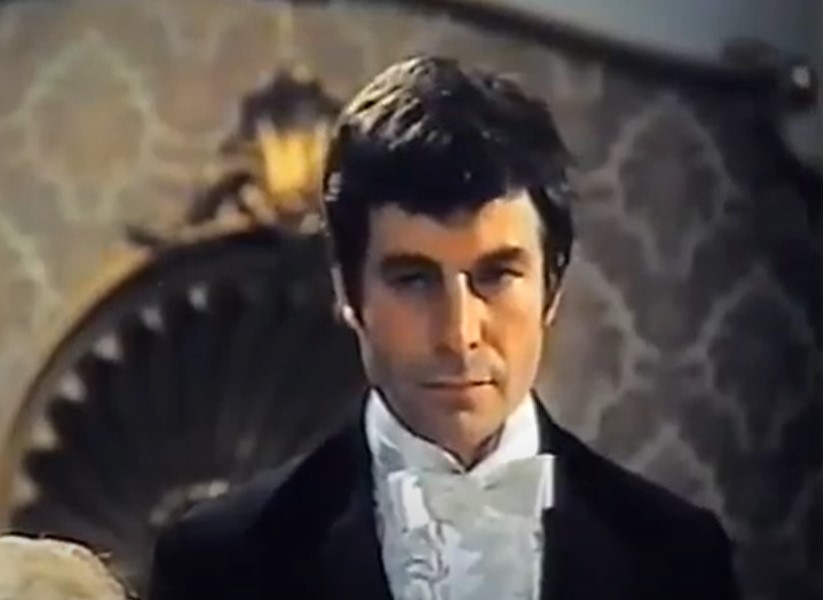 The Incredible Sarah (1976), Anchor Bay Entertainment
The Incredible Sarah (1976), Anchor Bay Entertainment
41. The Final Goodbye
In August 1889, word got to Bernhardt that her errant husband Damala had finally overdosed on morphine. She immediately rushed to his side, perhaps hoping to nurse him back to health—but it was far too late. He passed at the age of 34, his once beautiful face ravaged and exhausted. Bernhardt buried her troubled spouse in Athens, Greece.
42. Til Demise Do Us Part
Despite their horrific union, Bernhardt never quite let go of Damala. She never sought a divorce, partly because of her Roman-Catholic upbringing, and she always made sure to visit his grave in Greece when she was nearby. After his passing, and until her own demise, she even signed her letters: “Sarah Bernhardt, widow of Damala".

